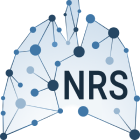Tom Gasan received NRS Travel Grant

This September, thanks to the kind funding by the NRS, I was able to present my recent data at the conference titled: “Parasitic Helminths - New Perspectives in Biology and Infection” hosted on the Greek island, Hydra. The meeting focuses on the aspects of molecular biology relating to infectious parasitic worms, making it a great opportunity to present my work on identifying molecules derived from the human parasite Schistosoma mansoni with the immunomodulatory capacity to protect against Allergic Airway Inflammation (AAI). Prior to the start of the main meeting program, a break out session was also organised relating specifically to the current research on parasite-derived extracellular vesicles (EVs); a route by which parasites might secrete immune-active molecules, and enable their uptake by specific host cells. The main outcome of this break-out session was discussions by the research community on good research practice for using EVs in an experimental setting, and decisions were shepherded by EV experts from outside the parasite / helminth field.
During the main conference, the speakers skilfully showed the audience the capacity by which parasitic worms might modulate the host’s immune system. Specific molecules or parasite extracts, sourced from a range of human or veterinary parasites, were examined for immunomodulatory activity in various models of allergic disease, including asthma and colitis. This insight has allowed me to plan a more streamlined pipeline for testing the S. mansoni immunomodulatory molecules, such as IPSE and Omega-1, both in vitro and in vivo. In addition, the feedback I obtained from my poster and short oral presentation related to examining the mechanism of action of Omega-1, a protein we have shown is able to reduce the allergic response in AAI. Fruitful discussions with colleagues and fellow researchers has encouraged new ideas, that will be valuable to understanding how Omega-1, and by extension other parasite-derived molecules, are able to ameliorate the allergic response during AAI.

